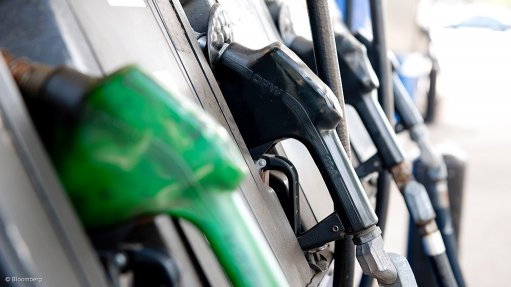
Photo by: Bloomberg
There is no urgency from Government to review the fuel pricing methodology to bring relief to motorists against soaring fuel prices.
The Department of Mineral Resources and Energy has not yet called a meeting for the committee who will be responsible for the task, but confirmed that it is busy formulating the criteria thereof.
Martlé Keyter, Chief Executive Officer of MISA, the Motor Industry Staff Association, says this is very frustrating for the Union who has been asking the Department, since March 2022, to be included in the process and got written confirmation that it would.
“From 6 July motorists will pay a new record high. The price of 93 octane petrol will rise by R2.37/l and 95 octane by R2.57/l. The retail price of a litre of 93 petrol will be R26.31 and 95 will cost R26.74 inland, while the inland wholesale price of 500ppm diesel will be R25.40 and 50ppm diesel will cost R25.53. This is nearly R10 per litre more than a year ago,” says Keyter.
The latest increases comes six month after Finance Minister Enoch Godongwana announced in December last year, Government will consider reforming the way the fuel price is calculated. He made the announcement when the inland petrol price rose above R20 a litre.
“Government wanted to review the fuel pricing methodology long before Russia's war in Ukraine that resulted in the skyrocketing of the Brent crude oil price. There is no time to waste.
“To make matters worse Eskom is plunging the country into unprecedented stages of blackouts, costing the crippled economy billions. The fuel price and Eskom combined has a devastating impact on every South African. We are bound to see inflation rising. Inflation was recorded at 6.5% in May 2022, up from 5.9% in April 2022,” says Keyter.
Dawie Roodt, founder and Chief Economist of the Efficient Group, predicts that inflation will rise to 7.5% soon. The South African Reserve Bank will have no option but to hike interest rates by 50 basis points.
“The reality that South Africa is heading for a technical recession, term used when a country had a negative economic growth for two consecutive quarters.”
Roodt put the blame on Public Enterprises Minister Pravin Gordhan, who during his term as Finance Minister continued to bail out state owned enterprises and prevented the restructuring of public service.
“More than two million workers lost their jobs in the private sector due to the Covid-19 pandemic. In the same period, not a single public servant lost his or her job or took a salary cut. The country is now paying the price,” says Roodt.
Issued on behalf of MISA by Sonja Carstens, Media, Liaison and Communication Specialist